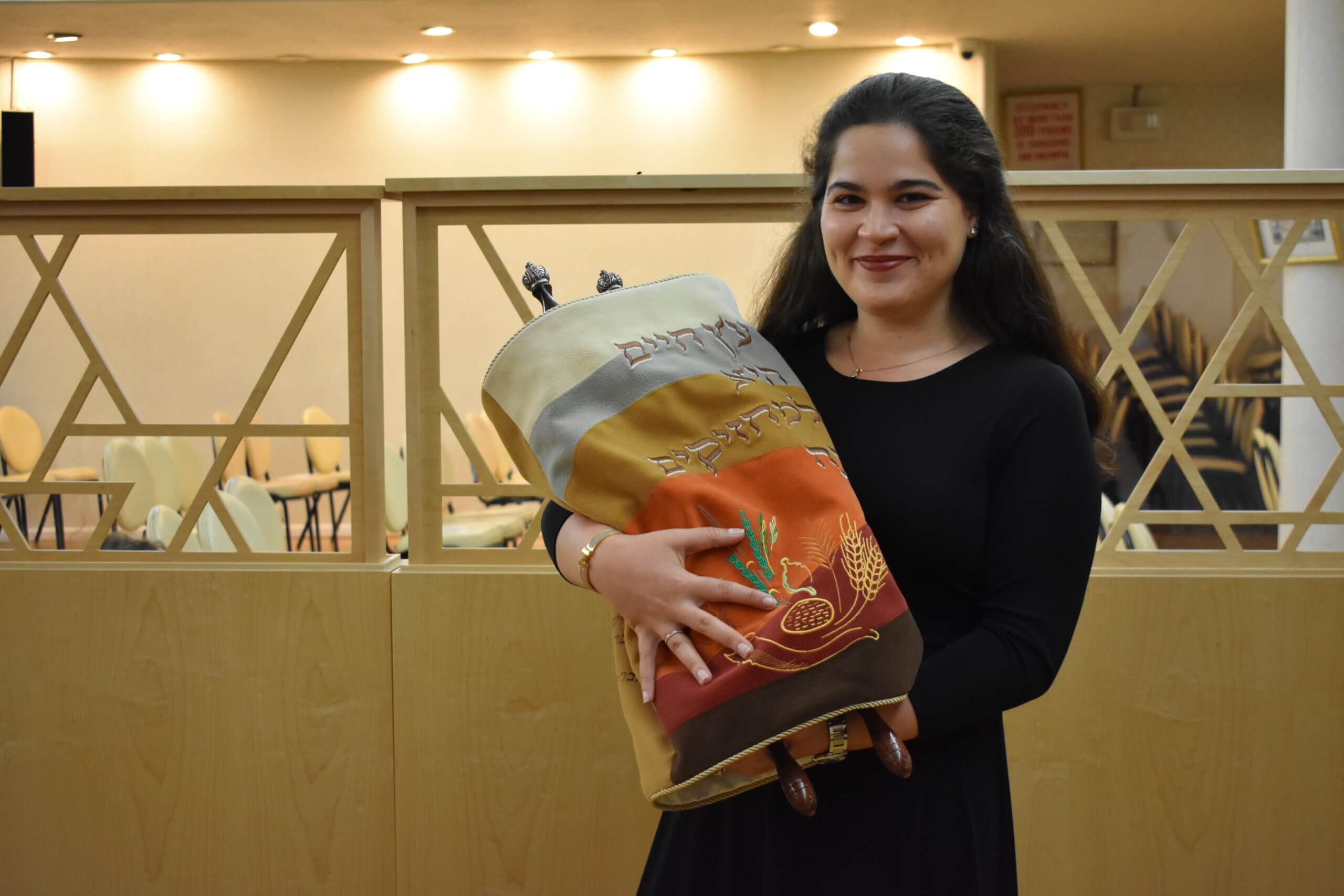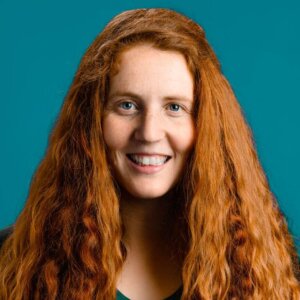On Simchat Torah, women belong in the synagogue
Women’s-only spaces often inadvertently reinforce the idea that women should be hidden away

Graphic by Angelie Zaslavsky
I have spent much of my life advocating for gender equality and women’s rights within Orthodox Judaism. So it might come as a surprise that I have come to have reservations about women’s-only Simchat Torah events.
Each year, when I find out about private gatherings, often not endorsed by the synagogues I attend, my heart sinks a little. Women are doing their best: They want a chance to celebrate and be part of Simchat Torah. Yet by taking an event private, we remove ourselves from the broader conversation and from visibility.
Simchat Torah, which comes at the conclusion of Sukkot, is a time when the entire community celebrates the completion of reading the Torah. It should be an opportunity for men and women to deepen their spiritual connection — together.
That is not to say that women’s-only events have no place in Judaism. In my hometown of Melbourne, I co-founded an Orthodox women’s prayer group. And in my role as an ordained rabbanit, I spend a lot of time teaching women to read from the Torah and delve more deeply into Jewish texts.
I do not wish to undermine the experiences of women who find meaning and spiritual connection in women’s-only Simchat Torah celebrations, especially those who previously had no other outlet.
But women’s-only Simchat Torah events perpetuate the “othering” of women in our religious communities. While women’s-only spaces may be intended to empower women and create a safe space for their participation, they often inadvertently reinforce the idea that women should be hidden away.
When women break off to have their own celebration, it is often outside of the confines of a synagogue. These private celebrations separate us from the mainstream celebrations, where women are kept on the sidelines rather than integrated into the central communal experience.
Women’s-only Simchat Torah events sometimes serve as a convenient solution for men who may not be willing to acknowledge the unique spiritual needs and perspectives of women.
If women wish to connect with the Torah through dance, some men may perceive this as unconventional within the framework of Orthodox norms. While many acknowledge that there is no religious basis for exclusion, they express a preference that within their synagogue, women do not engage in activities that are considered culturally unusual or outside the accepted traditional norms. When the men deny women the right to Simchat Torah celebrations with a Torah on their synagogue premises, many women choose to leave the premises and have a private celebration.
By creating separate women’s-only spaces, we risk allowing men to distance themselves from the broader conversation about inclusivity and gender equity within our communities.
As an Orthodox female rabbi, I know there are ways for synagogues to do this with women in mind, which meet the requirements of halacha.
This includes erecting a mechitza, and giving both men and women space to dance, sing and have their own Torah.
If we want to strive for inclusivity, instead of separating ourselves from the main event, we should advocate for change within our communities, pushing for more equitable practices that truly reflect our commitment to Orthodox feminism.
There is no reason according to halacha for a woman not to touch and dance with a Torah scroll. As it clearly states in the Shulchan Aruch, “All who are impure, even a menstruating woman, are permitted to hold a Torah scroll and to read from it, provided that their hands are not dirty or soiled.”
Integration, not separation
Every person’s spiritual journey is unique. For some, separate events may provide a valuable space for growth and connection. However, as an Orthodox feminist, I believe that our broader goal should be to integrate women fully into our religious communities, rather than offering separate and private, albeit well-intentioned, alternatives.
Women’s-only Simchat Torah events can sometimes hinder our progress in this regard. They may provide temporary relief, but they do not address the root problem: the need for men to acknowledge the spiritual needs of women and actively work towards accommodating them.
If a community is serious about inclusion, there should be regular programming and classes for women that take into account working women’s schedules and all stages of life. They should encourage synagogue and community publications to regularly feature the voices of women. They should promote and honor their women for their scholarship and their Torah study in Midrashot and Yeshivot.
And most importantly, synagogues and community organizations should provide mentorship and guidance to all women who wish to deepen their Torah knowledge, so that there are scholars there to mentor women and help them navigate Orthodox texts and traditions.
To contact the author, email [email protected].

















